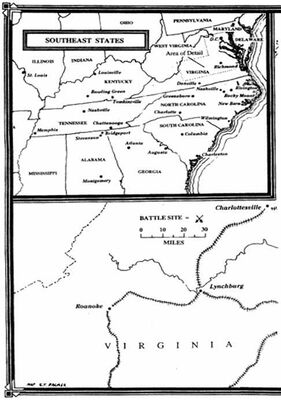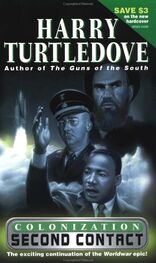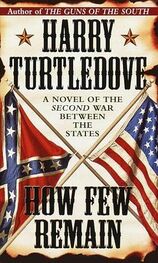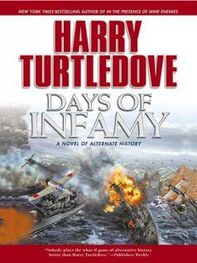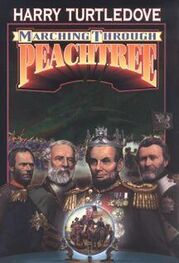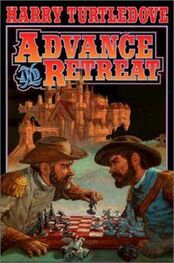He cheered up when Mississippi Congressman Ethelbert Barksdale came over to him and said, “I heard the last part of your talk with that fat fool, Mr. President. Of course he doesn’t fear fighting in a slave uprising; by the look of him, he probably didn’t fight in the Second American Revolution, either—or don’t you think he’s the kind who would have hired a substitute?”
“I shouldn’t care to impugn the courage or patriotism of a man I do not know, sir—but you may very well be right,” Lee said. Sometimes a small taste of malice was sweet. The pleasure swiftly faded, though. “But there are so many with views like his that I fear for my bill.”
“It will pass, sir,” Barksdale said earnestly. He was a Confederate party man through and through, having backed Jefferson Davis in war and peace and Lee after him (he’d barely kept his own congressional seat in the past election, just riding out Forrest’s Mississippi landslide). Now he lowered his voice: “If you’d told him what the AWB was really working toward, he would have turned up his toes.”
“With men of his stripe, I wonder even about that,” Lee said gloomily. But Barksdale had a point. Without the Richmond Massacre and the books in the AWB’s secret room, no bill limiting slavery in any way would have had a prayer of getting through the Confederate Congress. In the aftermath of the murders and of the revelations from the AWB sanctum, his legislation did have a chance, maybe even a good one.” As often happens with those who would do evil, the Rivington men proved their own worst enemies.”
“That they did.” Barksdale looked left, right, back over his shoulder, let his voice fall even further, so that Lee had to lean close to hear him: “And speaking of the Rivington men, Mr. President, what shall be done with the ones captured in the fighting round their home town?”
“Home base,” Lee corrected. “You pose an interesting question, Congressman. They were, of course, taken in arms against the Confederacy: a prima facie case for treason if ever there was one. Were we to hang them, not a voice could be raised against us.”
Barksdale stared at him. “You mean they might not hang? You startle me.”
“Nothing is yet decided. They fall under military rather than civil jurisdiction, both on account of their rebellion and because Nash County, North Carolina, where they were captured, had had the right to the writ of habeas corpus revoked and fell under the administration of General Forrest.”
“Ah, I see.” Barksdale’s face cleared. “The question is whether to hang ‘em or shoot ‘em? I don’t much care one way or the other; they’ll end up equally dead with either, which is the point of the exercise after all, eh?”
“As I say, nothing is yet decided. But ldo want to thank you again for your sterling work in support of the bill regulating Negroes’ labor. Have you any idea yet when it might come up for a vote?”
As was his habit, Ethelbert Barksdale licked his lips while he thought. “The vote in the House might be as early as next week. If it passes there…hmm. Senators having fewer limits on their debate than representatives, the bill may well encounter considerable delay in the upper house before it goes up or down.”
“I mislike delay,” Lee said fretfully. The longer legislators had to bury in their memories the Richmond Massacre and the truth about the AWB, the likelier they were to revert to comfortable, traditional Southern thought patterns—into which slavery fit only too well. “I trust, sir, that you will do your best to move the bill forward in the House with the utmost expedition.”
Barksdale puffed out the chest of his starched white shirt till he looked like a pouter pigeon. “Mr. President, you may rely upon me.”
If he was pompous, he was also sincere. Lee gave him credit for that, replying, “I do, sir; believe me, I do.”
The Mississippi congressman preened. Then his eyes narrowed in calculation. “One way to influence the tally might be the well-timed execution of a Rivington man or two.”
“I shall bear your advice in mind, I assure you,” Lee said. Barksdale swaggered off, pleased and proud to have influenced events. But Lee, though he would remember the advice, had no intention of taking it. He did not object to executing felons; he’d ordered rapists and looters in the Army of Northern Virginia hanged. To kill a man for the sake of political advantage, though—he rebelled at that, however richly some of the Rivington men deserved it.
He talked for a while with a veteran who had a hook where his left hand should have been. “Gettysburg, the third day,” the fellow said when Lee asked him where he’d been hurt.
He’d heard that too many times. “I should never have sent you brave lads forward then.”
“Ah, well, it came right in the end, sir,” the veteran said, smiling. Lee nodded, touched by his devotion. But he would have been equally mutilated had the South lost, without even the pride of victory to show for it. That would have been his bitter portion had the Rivington men not come, just as it was now for thousands of maimed men in the North.
Chatting with a couple of pretty girls helped restore Lee’s spirits. He’d always had an eye for women, had corresponded with several for years, but never did anything more all through his long marriage. Now the girls were also eyeing him, with a frank feminine speculation he’d never noticed before. He suddenly realized he was an eligible man once more. His face heated. The idea frightened him more than any two battles in which he’d fought. He retreated to the less intimidating company of Jefferson Davis.
“You’re rather flushed,” the former President observed. “Perhaps you should have the front door opened again in spite of the insects.”
“The heat is not what troubles me,” Lee said, with such dignity as he could muster. Davis, though far from a savvy politician, knew better than to ask what did.
As Lee’s carriage rolled east along Cary Street toward Libby Prison, it passed a mule team hauling a barge down the City Canal. In the James River, the twin stacks of the light-draft gunboat C. S. S. Bealeton sent pencils of smoke into the sky.
The prison was a three-story brick building, cream-colored up to the bottom of the second-floor windows and red above. A warehouse before the war, it had housed as many as a thousand Federal prisoners during the winter of 1863-64. Many of them managed to escape not long after Lee first met the Rivington men, but the chimney through which they’d gained access to the basement was long since sealed up. Moreover, more guards kept an eye on the fifty-one Rivington men on the third floor than had watched all those Yankees.
Lee’s own bodyguard nevertheless looked nervous as he preceded his charge up the stairs to the second-floor Chickamauga Room. “I shall be quite safe, Lieutenant, I assure you,” Lee said. “Only the one prisoner will be brought in, and not only you but several from the force here will be present to make certain nothing goes wrong.”
“Yes, sir,” the lieutenant said, eloquently unconvinced. After a moment, he added, “With the AWB men, sir, how do you propose to make certain of anything?”
“That is the question,” Lee admitted.
“Yes, sir,” his guard repeated, fiercely now. “I mean, after what happened at your inauguration—” He broke off, not wanting to hurt Lee by reminding him of the ill-omened day. His expression said he would have executed all the captured Rivington men without a second thought.
The Chickamauga Room, as headquarters for the prisoners, interrogation, had been fitted with a desk by one of its nine-paned windows and a few chairs. Guards snapped to attention when Lee came in. While he settled himself at the desk, a couple of them hurried off to fetch a captive for him to question.
Читать дальше